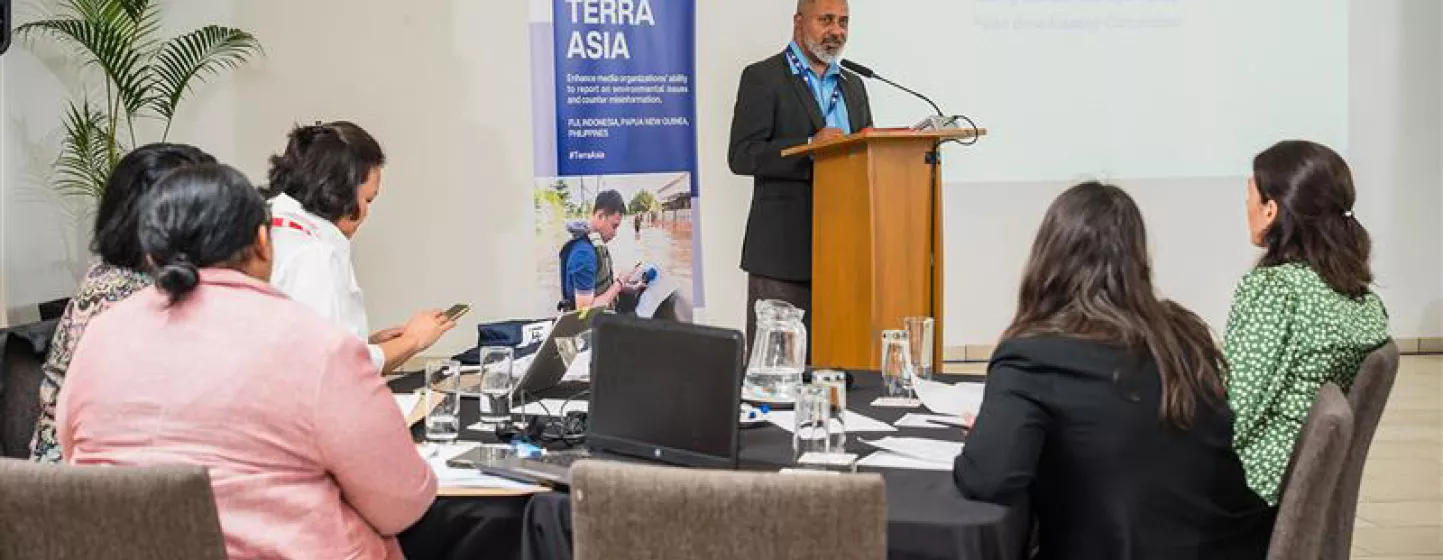Journalists' Memoir - Felix Chaudhary: Fiji, “Environmental issues are part of our daily life”
Acting CEO of the Fijian Broadcasting Corporation (FBC), 55-year-old Felix Chaudhary is appreciated by his team for “his knowledge, hard work, humility and kindness.”
Detained and threatened several times after the 2006 military coup, he is also a strong defender of press freedom in his country, the Fiji Islands.
Tell us about some of your best memories as a journalist
In sixteen years of journalism, I have so many “best memories”! But one of the most significant remains the transition of December 2022 in Fiji — the end of the previous regime and its restrictions, and the emergence of the true democracy we enjoy today. In 2022, the draconian Media Industry Development Act was abolished, a landmark moment for Fiji.
Before that, from 2006 to 2014, all journalists faced enormous difficulties.
The 2014 general election had already allowed the media landscape to start benefiting from some freedoms.
In short, why do you love this profession?
I love my job because it allows me to have a positive impact on people’s lives. Shedding light on issues and witnessing their resolution reminds me of the immense responsibility that journalism carries — and the satisfaction brought by positive outcomes.
What are the main journalistic developments in Fiji?
Newsrooms in Fiji and across the Pacific face major challenges linked to the rapid shift from traditional media, such as print and television, to digital platforms. This is undoubtedly the major evolution, bringing both tremendous opportunities and significant challenges.
How do Fijian journalists address environment-related topics?
Climate change and environmental issues are an integral part of journalists’ daily work in Fiji. We are frequently hit by tropical cyclones, and field reporters cover their consequences. We also regularly face flooding due to the increasing frequency and intensity of rainfall. As far as I know, we have not experienced issues with climate or environmental disinformation.
However, every journalist must ensure their information comes from credible sources. This is a fundamental principle of journalism.
After 2026, with the end of CFI’s Terra Asia project, what will be FBC’s editorial direction on environmental issues?
Forest degradation, coastal flooding, consequences of natural disasters… FBC has always covered environment-related topics. However, since the beginning of the Terra Asia project, I have noticed a shift in the way trained journalists approach these subjects.
They now prioritize interviews with professionals beyond just government representatives. Their research is more thorough, and their questions have evolved.
I am convinced that as training progresses, we will observe even more positive changes, which will be highly beneficial for FBC as a public media outlet.
Interview conducted by Emmanuel de Solère Stintzy (Journalistes Médiateurs)
